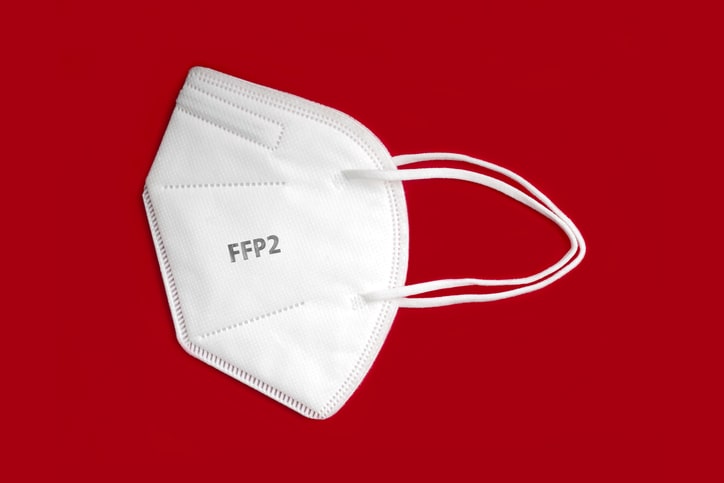
Vaccine hesitancy is defined as delay in acceptance or refusal of vaccines despite availability of vaccination services. In May 2021, a COVID-19 vaccine was granted Emergency Use Authorization (EUA) by the FDA for children and adolescents ages 12 to 15 years; the authorization was extended to children ages 5 to 11 years in November 2021. However, as of December 16, 2021, just 52.5% of 12- to 17-year-olds and 11.3% of 5- to 11-year-olds had been fully vaccinated. In a national survey conducted in October 2021, 30% of parents with children 5 to 11 years of age said they would “definitely not” vaccinate their child.
Approximately 0.5% of children in the United States have chronic kidney disease (CKD) and are at increased risk for infection-related morbidity and mortality. Studies have demonstrated that adults with CKD are at increased risk of severe COVID-19, as well as for COVID-19-related complications and death. There are only limited data on COVID-19 in children with CKD. Children with CKD may have increased vulnerability to infection and severe disease associated with direct effects of CKD, use of immunosuppressive medications among kidney transplant recipients and glomerular diseases, comorbid conditions such as hypertension and diabetes, and unavoidable exposures at health care facilities (eg, hemodiaysis).
Vaccine hesitancy ranges from acceptance of some vaccines, to uncertainty and delays in vaccination, to complete refusal of all vaccines. Chia-shi Wang, MD, MSc, and colleagues in Atlanta, Georgia, conducted a sequential explanatory mixed-methods design study to examine COVID-19 vaccine hesitancy among parents of children with CKD or hypertension.
The researchers sought to assess the scope of vaccine hesitancy, identify subgroups that might benefit from targeted interventions, and recognize underlying factors that influence attitudes toward vaccines to aid future pragmatic COVID-19 vaccine promotion among parents of pediatric patients with kidney disease. The study cohort included parents of children <18 years of age with kidney disease or primary hypertension within a large pediatric practice.
The study exposure was parental attitudes toward general childhood and influenza vaccines assessed by the Vaccine Hesitancy Scale (VHS). Based on responses, select survey participants then participated in an in-depth interview to gather further understanding of the influences on vaccine attitudes. The outcome of interest was parents’ willingness to vaccinate their child against COVID-19.
The study was conducted between December 2020 and October 2021, inclusive of the regulatory approval time points for the COVID-19 vaccine for children in the United States (December 2020 for those ≥16 years of age and May 2021 for those ≥12 years of age). The study period preceded the EUA approval in November 2021 for those ≥5 years of age.
Comparison of parental attitudes toward general childhood and influenza vaccination with attitudes toward COVID-19 vaccination was conducted with the analysis of variance (ANOVA) test. Willingness to vaccinate against COVID-19 was assessed using multinominal logistic regression. Influences on parental attitudes were characterized using thematic analysis of interview data.
A total of 207 surveys (39% of eligible, approached parents) were completed, representing 22% (39/176) of approached kidney transplant patients, 32% (12/38) of approached dialysis patients, and 50% (156/315) of approached CKD (non-kidney failure) or hypertension patients.
Thirty-six percent (n=75) of participants indicated they were willing to vaccinate their child with kidney disease or hypertension against COVID-19; 39% (n=80) were unsure; and 25% (n=52) were unwilling. There was moderate agreement between parents’ willingness to vaccinate themselves versus their child with kidney disease or hypertension and versus other children without kidney disease. Parents were less willing to vaccinate their children than themselves. There was high agreement between willingness to vaccinate the child with kidney disease or hypertension and other children; however, there was low willingness to vaccinate the child with kidney disease or hypertension.
Hesitancy against general childhood and influenza vaccines was highest among the group unwilling to vaccinate against COVID-19 (P<.001).
In adjusted analysis, there was an association between having a child with glomerular disease versus congenital anomalies of the kidney and urinary tract and willingness to vaccinate. There was also an association between having a college or higher degree and willingness to vaccinate. Compared with White respondents, those who identified as Black were more likely to be unwilling to vaccinate. Results of analyses contrasting with the respondents who were unsure, parents with a female child were more likely to be willing to vaccinate, and parents of older age children were nominally more likely to be willing to vaccinate (this finding was of borderline statistical significance).
Three salient themes differentiated the participants who were willing, unsure, or unwilling to vaccinate their child with kidney disease or hypertension: (1) benefit versus harm; (2) what do the doctors think?; and (3) information still needed. Respondents expressed concerns about rushed development of the COVID-19 vaccine and fear of serious and unknown long-term side effects. The need for additional information on COVID-19 vaccines was greatest in the parents in the unwilling to vaccinate group and the unsure about vaccination group.
Limitations to the study findings cited by the authors include the inability to account for the various underlying kidney diseases and variations in clinical interaction frequencies and possibly communications about the vaccines. In addition, generalizability would be limited across different clinical settings and other institutions and contexts.
In summary, the researchers said, “We present novel information on the prevalence, predictive factors, and influences on vaccine hesitancy in this vulnerable patient cohort. We combined the strengths of quantitative and qualitative methodology for robust findings to help inform the kidney community on the scope of vaccine hesitancy and develop COVID-19 vaccine promotional campaigns.”
Takeaway Points
- Researchers reported results of a study examining COVID-19 vaccine hesitancy among parents of children with kidney disease or hypertension.
- Of the 207 parents who completed the study survey, 36% were willing to vaccinate, 39% were unsure, and 25% were unwilling to vaccinate their child against COVID-19.
- Parents with college or beyond were more likely to vaccinate their child. There was an association between Black race and being more likely to be unwilling.







 © 2025 Mashup Media, LLC, a Formedics Property. All Rights Reserved.
© 2025 Mashup Media, LLC, a Formedics Property. All Rights Reserved.